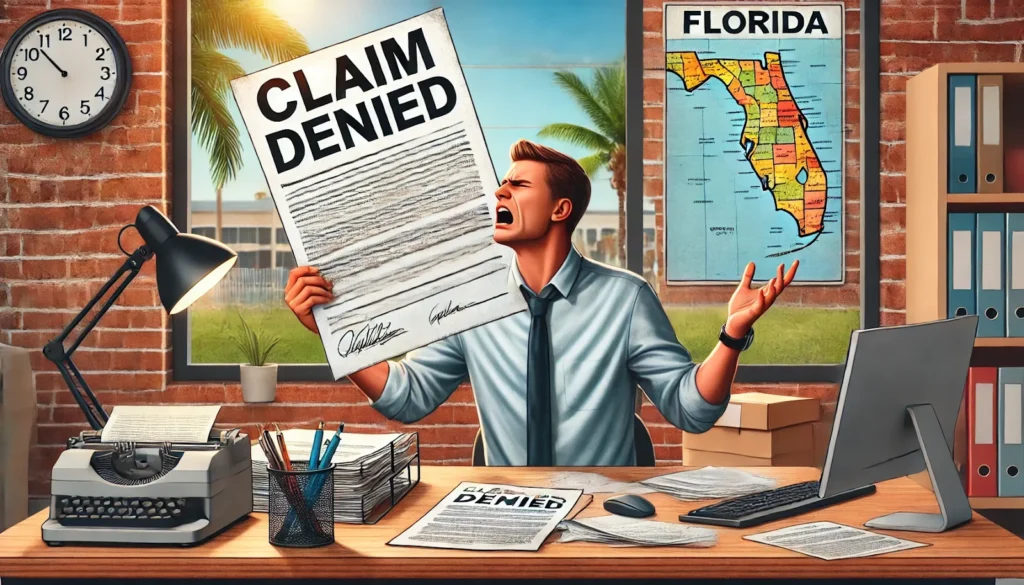Experiencing a denial of your workers’ compensation claim can be a daunting and stressful situation for injured workers in Florida. If your claim is denied, you have the right to appeal the decision through a formal process, ensuring that you still have a chance to receive the benefits you need. Each step in this journey requires a comprehensive understanding of your rights and the various stages involved.
Upon receiving a denial, the first crucial step is to file a Petition for Benefits with the Florida Office of Judges of Compensation Claims (OJCC). This legal document lays out the details of your claim and marks the beginning of the appeals process. Accessing resources such as the experienced Ft. Lauderdale workers’ compensation attorneys can significantly bolster your efforts to overturn the denial.
Navigating through multiple hearings before a judge may be necessary during your appeal. Legal expertise can be invaluable in these situations, recommending strategies and ensuring that all required documents and evidence are meticulously prepared and submitted. Understanding these steps and being proactive can make a substantial difference in the outcome of your appeal.
Understanding Workers’ Compensation in Florida
Workers’ compensation in Florida aims to provide benefits to workers injured on the job, covering medical treatment and lost wages. Both eligibility criteria and the process for filing claims are crucial for ensuring workers receive the benefits they are entitled to.
Eligibility and Coverage Under Florida Law
To qualify for workers’ compensation in Florida, an injured worker must be employed by an employer required to carry workers’ compensation insurance. Most businesses with four or more employees are mandated to have this insurance.
Compensable work-related injuries include physical injuries, mental health conditions resulting from physical injuries, and illnesses caused by exposure to hazardous materials at the workplace. Pre-existing conditions may complicate claims, but if the pre-existing condition is exacerbated by a work-related injury, it may still be covered.
Medical benefits cover necessary medical treatment related to the injury, including doctor visits, surgeries, and prescriptions. Lost wages compensation is also available and typically covers a portion of the worker’s average weekly wage during the period they are unable to work.
The Claims Process and Potential for Denial
The claims process begins with the injured worker reporting the injury to their employer as soon as possible. Timely reporting is crucial, as delays can lead to complications or denial of the claim. Once reported, the employer should notify their insurance company, initiating the investigation process.
An insurance company investigates the claim by reviewing medical evidence and employment records. Inconsistent records or insufficient documentation can lead to denied claims. Common reasons for denials include the injury not being work-related, the presence of a pre-existing condition, or failure to follow correct procedures.
If a claim is denied, the injured worker can file a Petition for Benefits with the Office of the Judges of Compensation Claims. Options to resolve disputes include mediation or a formal hearing, where legal representation can significantly aid in presenting a strong case for entitlement to benefits.
Understanding these steps and potential pitfalls helps injured workers navigate the process smoothly and maximize their chances of receiving rightful compensation.
Navigating Denials and the Appeals Process
A denied workers’ compensation claim in Florida can feel overwhelming. Knowing the steps to challenge the decision and understanding the legal process can significantly ease this burden.
Steps to Take After a Denied Claim
When a claim is denied, filing a Petition for Benefits with the Office of Judges of Compensation Claims (OJCC) is the first step. This document outlines the nature of the denied claim and why it should be reconsidered.
It’s crucial to identify the specific reasons for the claim denial, such as insufficient evidence or missed deadlines. Gathering and presenting strong case documentation, including medical records and witness statements, is essential to support the appeal. Consulting with a Florida Workers’ Compensation Attorney early in the process can provide guidance and improve the chances of success.
Legal Proceedings and Representation
After the petition is filed, one can pursue mediation or a formal hearing to resolve the dispute. Mediation is a less formal process where a neutral mediator helps both parties reach an agreement. Alternatively, a formal hearing before a Judge of Compensation Claims involves presenting the case more formally.
If the outcome is still unfavorable, the decision can be appealed to the First District Court of Appeal. Legal representation by a workers’ compensation attorney is highly recommended throughout these stages. Many attorneys offer a free consultation, which can help determine the best path forward. Effective legal support ensures the appeal is well-presented and meets all procedural requirements.
The denial of workers’ compensation claims in Florida can be a significant hurdle for employees seeking benefits. Understanding the steps to challenge a denial is crucial.







